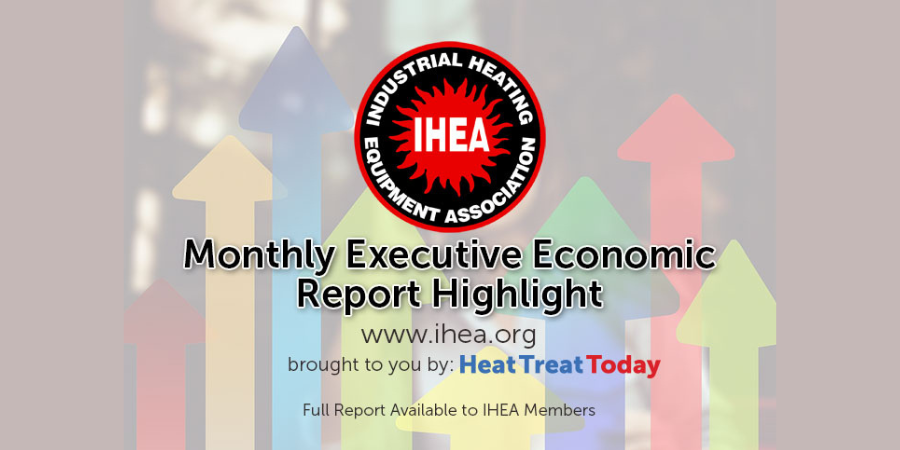The monthly Industrial Heating Equipment Association (IHEA) Executive Economic Summary released in April starts with an analogy of current world events compared to a scene from the animal kingdom. The statement, "when elephants fight it is the mice that suffer," is used to describe the "elephants", the U.S. and China. There's not a lot of good that comes when two major world economies continue to disagree all while still depending on each other for supplies and material goods.
How does this analogy include the heat treating industry? Heat treaters come under the "mice" category, and there are definite hardships that continue to plague supply chain, production, and demand; as the "elephants" battle. China is putting up all sorts of obstacles on their exports, and now the U.S. is dealing with the Biden administration's push for the automotive industry to convert electric vehicle production. "How does the U.S. manufacturer avoid becoming the mouse that gets trampled by this fight between elephants?" the IHEA report questions. "The simple assertion is that the U.S. has to find alternative sources for the materials and commodities that have been provided by China. This may be simply stated but accomplishing this will be anything but simple."
An examination of the economic indices shows how the tension between nations seems to be affecting numbers. A majority of the sectors see drops: Steel Consumption, Industrial Capacity Utilization, Metal Pricing, Capital Expenditure, Durable Goods, and Factory Orders. However, 4 indices show, if not improvement, steady progress: New Auto/Light Truck Sales, New Home Starts, Purchase Managers Index, and Transportation Activity.
Good news for heat treaters in the automotive sector is that demand for cars and light trucks is still high. This is tempered with banks that are becoming more guarded in offering car loans since large numbers of people are not keeping up with their loan payments. Another concern creeping in is the future of traditional vehicles since the push for EVs is becoming apparent. The "mice" have a lot to think about for the future of automotive sales.

Source: IHEA

Source: IHEA

Source: IHEA
Heat treaters know that durable goods include things like appliances and equipment. This sector is staying strong due to demand in markets like defense, multi-family housing, and machinery.

Source: IHEA
"The transportation sector is often a leading indicator. . . .There is no reason to book a truck or plane or rail car unless there is something to move," states the IHEA report. Not only does this index rise when actual goods are being moved to demand, but the need for transportation comes when there is "anticipated demand." These numbers are encouraging, still staying on the positive side.

Source: IHEA

The mice are depending on the elephants to make some decisions that will benefit all. While the U.S. is still dealing with China, the report encourages making decisions based more on economical reasons rather than political clout. It seems the writing is on the wall to consider alternative nations from which to source supplies and raw materials. Within the U.S., there are raw materials that can be sourced; so maybe it is time to focus on those resources.
Check out the full report to see specific index growth and analysis which is available to IHEA member companies. For membership information, and a full copy of the 11-page report, contact Anne Goyer, executive director of IHEA. Email Anne by clicking here.
 Find heat treating products and services when you search on Heat Treat Buyers Guide.com
Find heat treating products and services when you search on Heat Treat Buyers Guide.com







